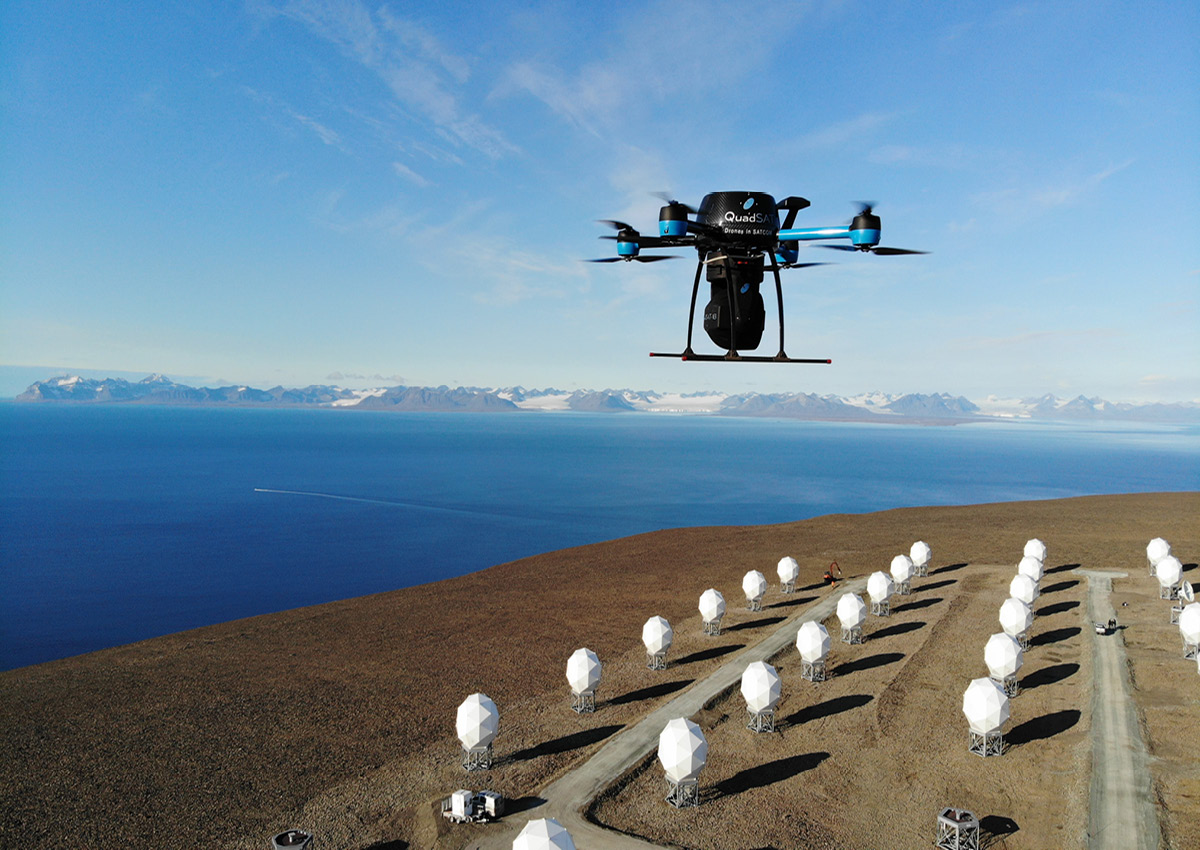Innovative drone solution

An airborne antenna and tracking test system that can test antennas in the field without moving them. This is what QuadSAT has developed in their new drone solution that reduces resources, accelerates data handling, and provides the customers with more flexibility and a time-saving product.
QuadSAT has developed a drone solution to perform diagnostics on antennas in the field without the cost and time of moving the antennas to test labs. The system is transported directly to the antenna where the automated test is performed. The data is then collected and processed in the post-flight software and the data is sent directly to the customer.
“At QuadSAT, we want to change how antennas are handled in the satellite and radar industries by creating software and hardware that enable antenna testing and validation at any time from anywhere in the world using drones – a service that has up to now been confined to large test facilities,” says Mads Selvejer Plum, Business Development Manager at QuadSAT.
With QuadSAT’s solution, diagnostics can be done in the field at any time no matter where the antennas are located. The company is the first to offer this solution within the satellite industry.
As part of the innovation project DigitaliseringsBoost, QuadSAT significantly enhanced their drone solution by taking their prototype and further developing the software and some aspects of the hardware. With the new additions to the software, customers can now save the data from their antennas directly to their cloud storage from anywhere in the world.
Innovation project enhanced the tech
“DigitaliseringsBoost was a great way for us to further develop our drone solution and improve several aspects of the technology such as the software as it gave us the opportunity to collaborate with innovative partners,” says Plum.
QuadSAT collaborated with Viking Software and UCL University College on further developing their drone solution as part of the innovation project DigitaliseringsBoost, run by Odense Robotics and Business Hub Fyn.
Viking Software helped expand QuadSAT’s software development, while UCL assisted in refining the solution’s software architecture and cloud storage. UCL students also contributed to the project by testing the product’s software interface and giving feedback to QuadSAT, making the product more intuitive and user-friendly.
The product is now on the market and the services are conducted by QuadSAT representatives. The company is working on the finishing touches on the user interface in order for customers to use this advanced technology on their own in the near future.
Photo credit: KSAT Svalbard Ground Station
Learn more:
Get in touch
Or contact: Thomas Gammelgaard, Project Manager, Odense Robotics, Phone: +45 28 87 86 01, mail: thgam@odenserobotics.dk


Startups and Beyond Beta





